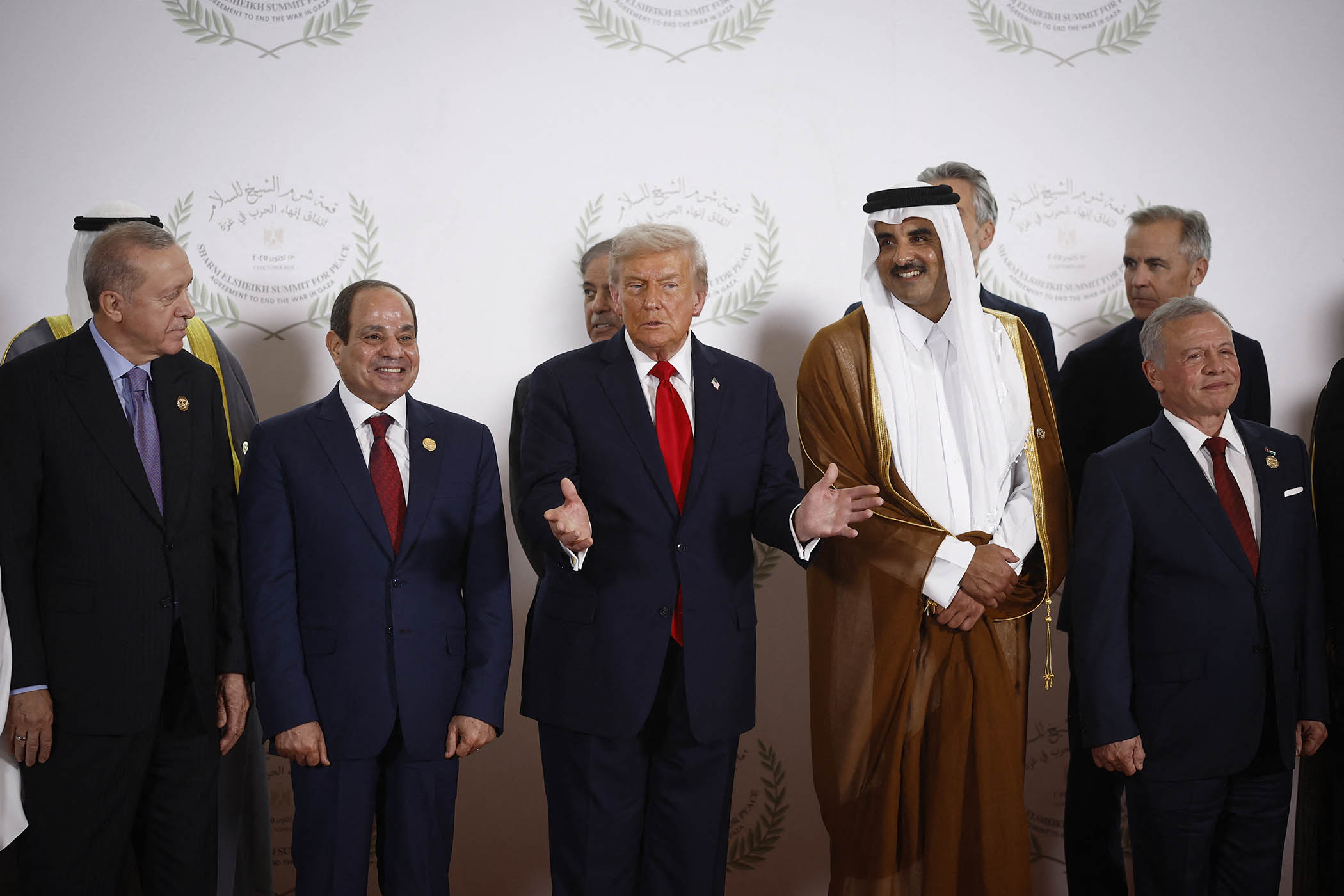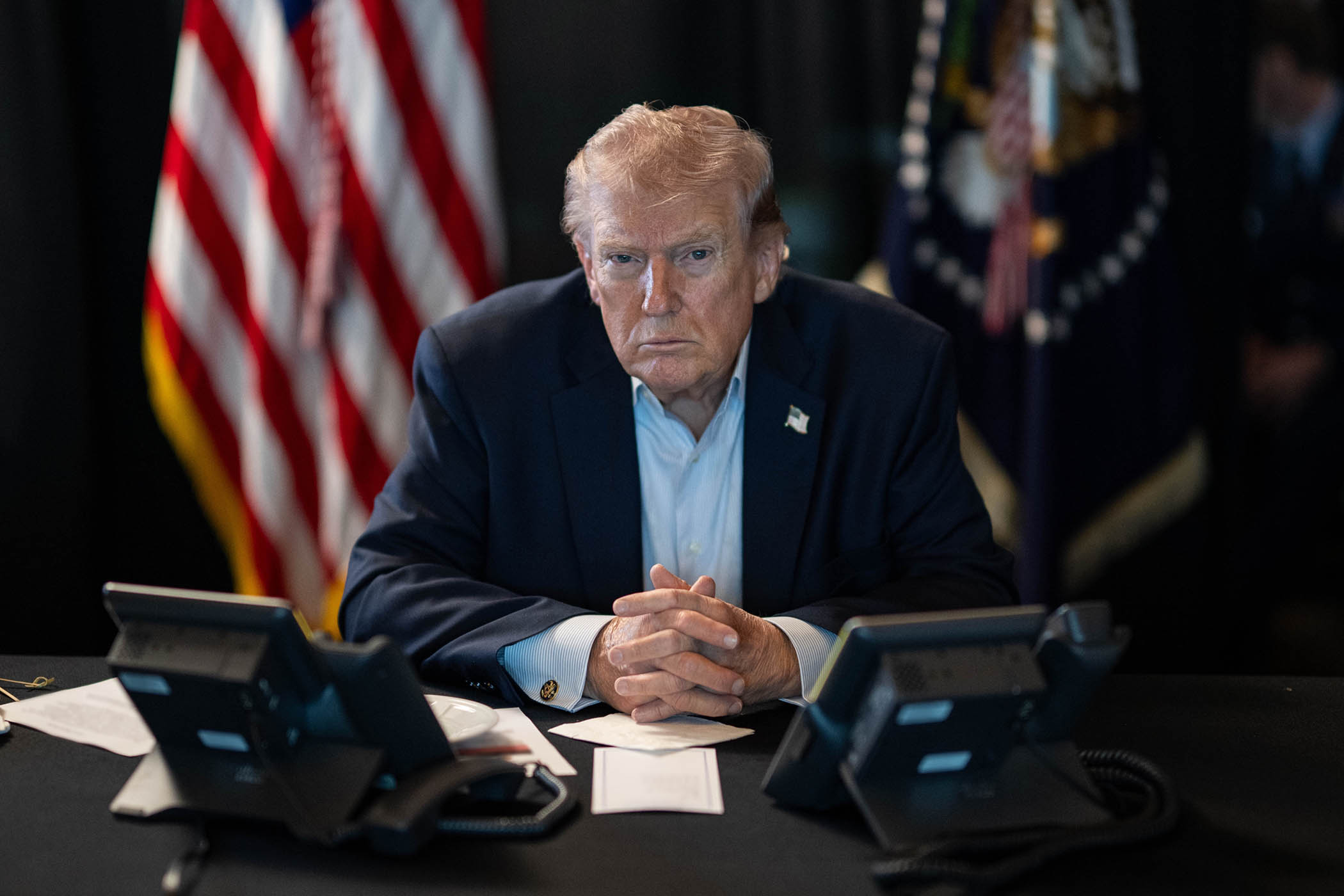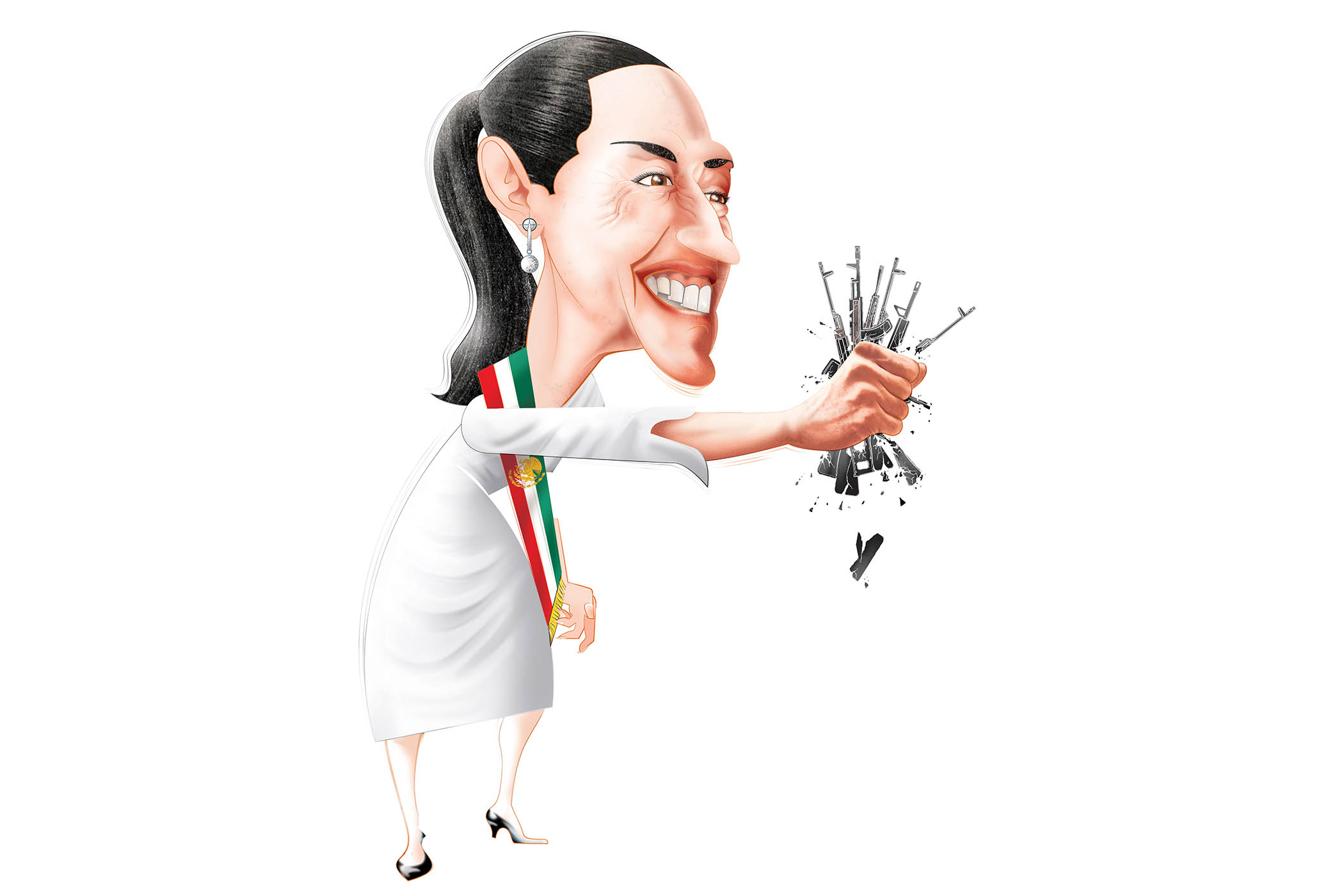Donald Trump has stolen the show. Hours after 20 living Israeli hostages returned home, he received a hero’s welcome from the Knesset and then travelled to Egypt where he co-hosted a major peace summit.
So what? It is the kind of adulation Trump craves. The pressure he put on Benjamin Netanyahu was essential to securing the ceasefire but, as the US president acknowledged on Monday, other countries also put in a considerable amount of legwork. These include
•
Egypt, which played a prominent mediating role and led Arab opposition to an earlier US proposal that would have displaced Palestinians from Gaza;
•
Qatar, which was another major go-between and
•
Turkey, which staged a late intervention to get Hamas to accept the deal.
Group effort. All three are expected to participate in the international stabilisation force that will deploy to Gaza, although plans are still being discussed. The force is also likely to include personnel from the United Arab Emirates, a major aid funder for Gaza.
Home front. Arab leaders have long championed the Palestinian cause, which has widespread support among their citizens. Ending the suffering in Gaza, where 67,000 have been killed, was a moral imperative. But it also bolsters their domestic legitimacy.
The broker. Qatar’s involvement came as no surprise. In the past few months it has
•
hosted peace talks between the Congo and Rwanda;
•
mediated between Israel and Iran during their brief war and
•
helped return Ukrainian children from Russia.
Bigger picture. These efforts are part of Qatar’s broader attempt to position itself as a hub of global diplomacy. Only four years ago the tiny emirate was under a blockade imposed by its neighbours, which accused it of supporting terrorism. Now it is key to the diplomatic jigsaw.
Return to form. The peace talks offer Egypt an opportunity to reassert itself as a regional player. It was the first Arab country to recognise Israel in 1978 and is one of the Middle East’s traditional power brokers. But Cairo has been sidelined in recent decades by the emergence of the wealthy Gulf states, which now form the region’s centre of gravity.
Good books. Egypt’s authoritarian president Abdel Fattah el-Sisi, who seized power in 2013, has come under fire in the past. Three years ago the Biden administration froze $130m of military aid to Egypt, citing human rights abuses. On Monday, el-Sisi and Trump hosted a conference of world leaders in Sharm el-Sheikh. El-Sisi’s office billed it as a chance to “usher in a new phase of regional security and stability”.
Organiser. Earlier this year, Egypt convened an emergency summit where Arab leaders condemned Trump’s idea of depopulating Gaza to transform it into a glitzy beachfront destination. The gathering threw its weight behind an alternative plan. Several of its tenets are in Trump’s 20-point peace framework, including deploying a stabilisation force to the enclave and forming an interim technocratic committee to govern it.
History lingers. Arab countries are keen to avoid an influx of Palestinians to their territory. They remember how previous rounds of displacement badly destabilised Jordan in the 1960s and helped precipitate the Lebanese civil war of 1975 to 1990. In both countries Palestinian militants undermined the state by carving out spheres of influence among refugee populations.
Newsletters
Choose the newsletters you want to receive
View more
For information about how The Observer protects your data, read our Privacy Policy
The rebuild. Egypt is the only Arab state to share a border with Gaza, so will have an important role in its reconstruction. Businessmen are already discussing setting up factories to produce cement and other materials. These initiatives will create jobs and could revive the economy.
Money talks. But Egypt won’t be able to finance these efforts. The money is likely to come from Gulf states including Saudi Arabia, Qatar and the United Arab Emirates. Although Turkey played a marginal part in the ceasefire talks until recently, its companies see an opportunity to win lucrative reconstruction contracts as they have in Syria since the fall of Assad.
What’s more… Maintaining order in post-war Gaza carries risks, especially when Israel remains opposed to a two-state solution. If their aspirations are thwarted, Gazans may come to resent Arab peacekeepers as an occupying force which is doing Israel’s dirty work.
Photograph by Yoan Valat/AFP via Getty Images



